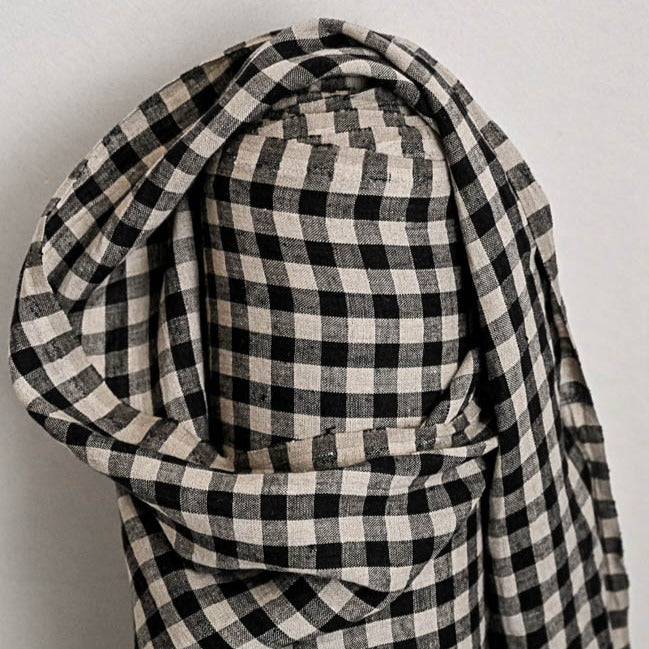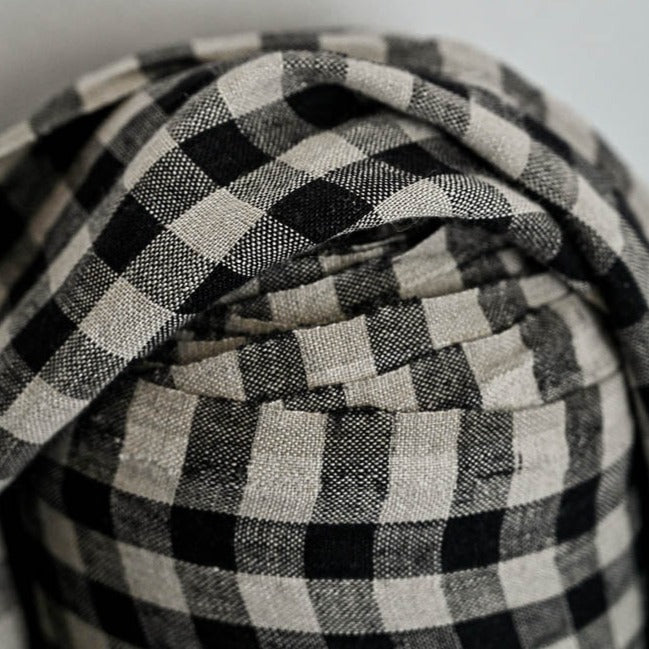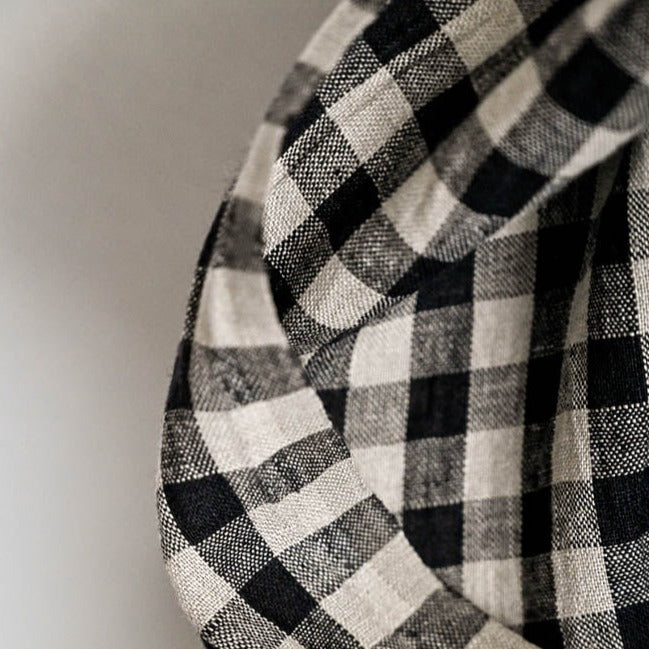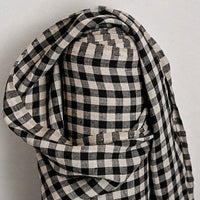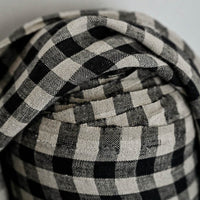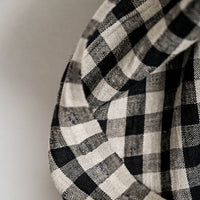Merchant & Mills
European Laundered Linen - Mrs Lewes - $74/m
- Regular Price
- $18.00
- Sale Price
- $18.00
- Regular Price
- Unit Price
- per
$74 per metre
1 quantity = 0.25m - $18.50
Order Instructions
- Fabric pricing is for 0.25m fabric (1 quantity = 0.25m)
- You can order in 0.25m increments (i.e. 4 quantities = 1m x width of fabric)
- Orders of 0.5m (2 quantities) or more will be cut as one continuous length
- Orders of 0.25m (1 quantity) will be cut across the full width of fabric.
European laundered linen, tumbled at the mill for softness. This linen is yarn dyed, meaning the yarns are dyed before being woven.
Black and natural gingham. Suitable for dresses, tops, loose trousers, and slouchy jackets. Would make a fine Ellis dress.
Check size 1.2cm. Pattern repeat 2.5cm.
Material: 100% Linen
Fabric Width: 145cm
Fabric Weight: 200gsm or 5oz
Thread Match: Gutermann Sew All 633
Care Instructions:
Wash at 30 degrees with a non-bio detergent. Do not tumble. Shake out and dry flat. Linen will always seize up after washing but as soon as you start to use/wear it, the fibres relax again.
If you are using this linen for curtains, we recommend using a lining to prevent fading.
Never dry linen in direct sunlight as the colour can bleach and fade.
Made using AZO-free dyes.
More about linen:
Linen is naturally stain-resistant, does not pile, and is moth repellent. It is easy to wash as it can sustain high temperatures, has very little if no shrinkage and is very strong.
It is anti-bacterial, anti-fungal, hypoallergenic and thermoregulating, it will also absorb up to 20% moisture before feeling damp.
As the linen fibres have low elasticity (which causes it to crease) it will wear in any areas that are repeatedly folded in the same place for a long time, however, it does have much better abrasion resistance than say cotton.
Eco Credentials:
Flax is a strong plant best grown in northern Europe. It needs little or no fertilisers and due to the local climate, little extra water. It doesn’t really require many pesticides either as it can grow in poor quality soil. The Advisory Commission Report to the European Parliament stated that flax cultivation has positive effects on eco-system diversity as it allows for an “environmental pause”. One hectare of flax can retain 3.7 tonnes of CO2. Every part of the plant is used, what isn’t used to produce linen can be used to make linseed oil, paper, cattle feed or even soap.
Linen is therefore almost naturally organic. It is completely biodegradable and recyclable, and due to its natural absorbency, it requires less dye than cotton. Linen, therefore, scores high on the ecological chart.
